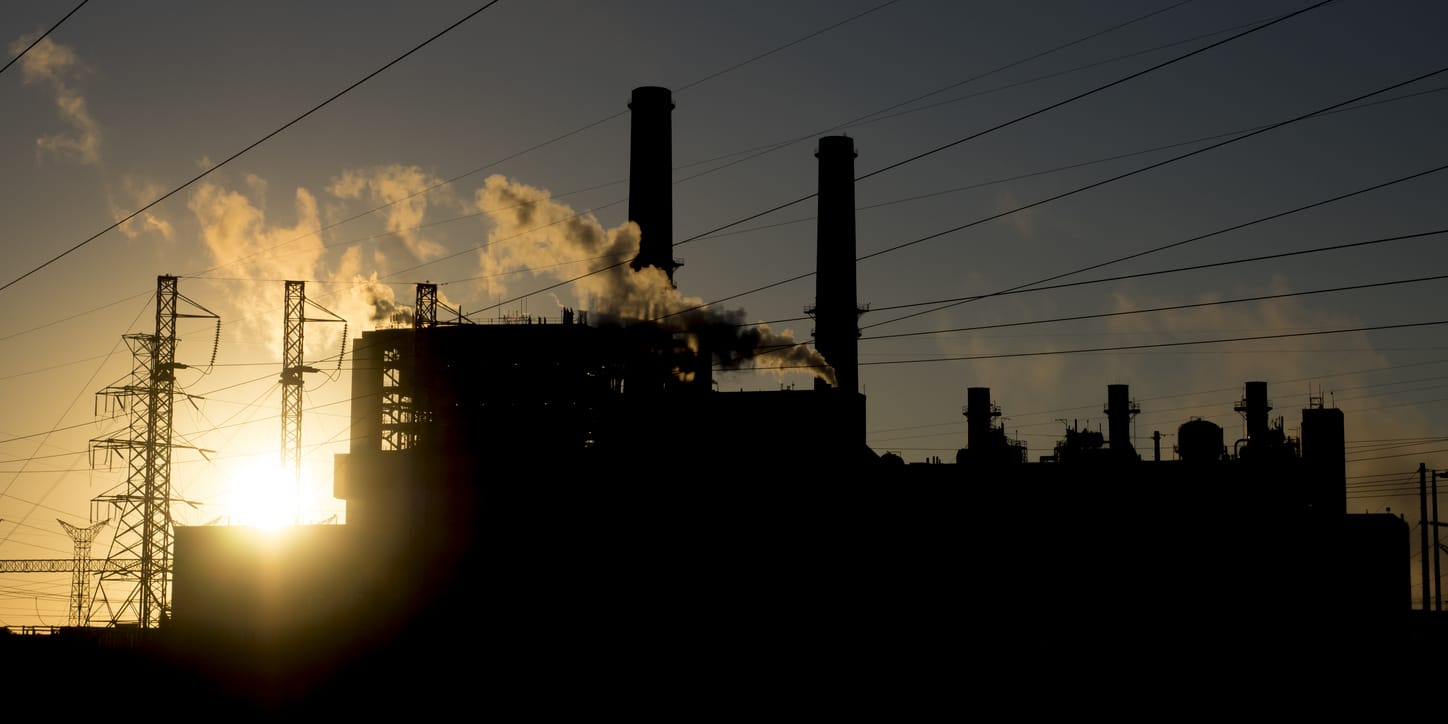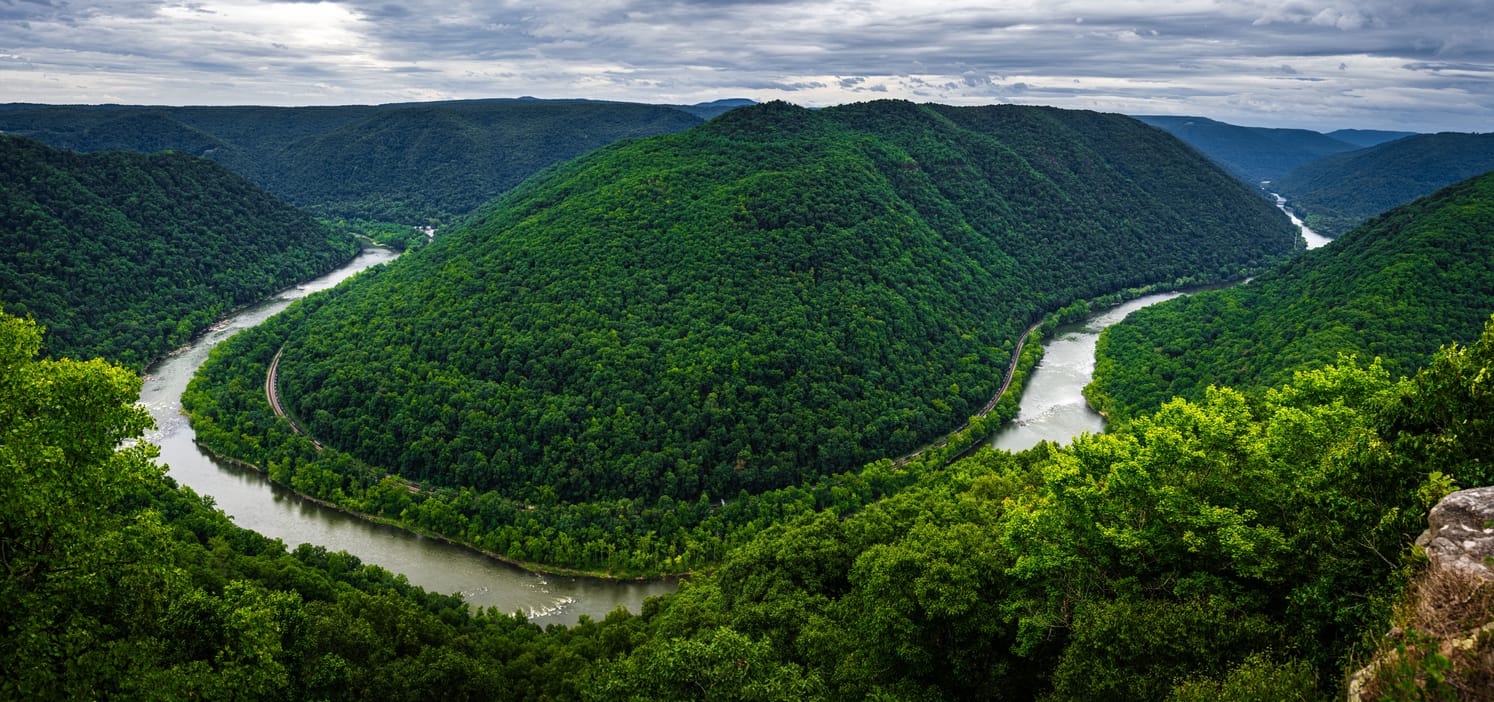Powering Arkansas: Sen. Matt McKee on the fight for reliable power
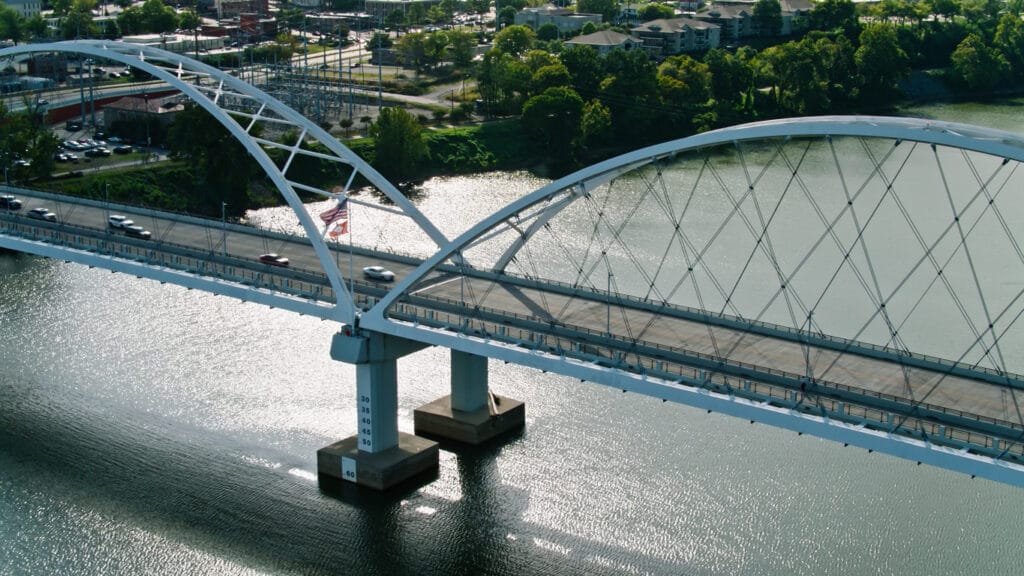
Arkansas Senator Matt McKee was elected to the state Senate in 2022 and sworn in on January 9, 2023. He represents District 6, covering parts of Garland and Saline Counties. He serves as Senate vice chair of the Joint Energy Committee and sits on several other key committees. A licensed residential remodeler, Senator McKee lives in Pearcy with his wife and their four daughters. He recently joined American Habits Editor Ray Nothstine for a conversation on building smart, cost-effective energy policy in Arkansas and beyond.
Can you tell me the short version of how you got involved in energy policy? That’s not a big part of your background, correct?
Sen. Matt McKee: I’ve come to believe this is one of the most important issues we face today. Without electricity, you can’t even carry out basic financial transactions, right? Energy touches every part of our lives. What struck me was that no one in Arkansas seemed to be seriously focused on it. That’s what pulled me in and grabbed my attention.
Our system has real vulnerabilities, and energy costs affect every family and business in the state. I felt like it was too important to ignore. Someone needed to pay attention and push for changes that actually improve people’s lives.
Energy costs have gone up alongside nearly everything else. What are a few of the best ways a state legislator can help lower energy bills for Arkansans? And what are the biggest obstacles you see?
McKee: There’s quite a bit that states can do. Fortunately, Arkansas is in a relatively strong position. One advantage is that we’ve got a solid conservative governor and legislature, and we’ve avoided the kinds of mandates that drive up energy costs in other places with green style initiatives.
For example, we haven’t forced our utilities to use a specific fuel mix, like requiring 80% solar, 20% wind, and just 2% being coal, natural gas, or nuclear. Those mandates might sound good politically but raise rates for families.
Here in Arkansas, we’ve let the market play a bigger role. The Nuclear One power plant in Russellville is a great example—it’s been a workhorse, providing most of our electricity. Because we haven’t boxed ourselves in with rigid energy mandates, we’re in a much better place to keep rates lower.
Even if you build a solar farm to power a data center, you still need natural gas, coal, or nuclear as a backup.
You can’t rely solely on solar or wind, because the sun doesn’t always shine and the wind doesn’t always blow. And right now, we just don’t have the battery technology or capacity to store enough energy to meet demand when those sources aren’t producing.
One of the biggest misconceptions people have is that electricity is like water—you just store it in a big tank somewhere and turn a valve when you need more. But it doesn’t work that way. Electricity must be generated at the exact moment it’s needed. That’s why a reliable energy mix is so essential.
Do we want energy abundance and energy dominance, or are we willing to accept decline?
You can’t have too much electricity in the system, and you can’t have too little electricity in the system. If you’ve got solar and you’ve got wind and it’s windy and sunny, that’s great, but on the days when it’s not, you’ve got to have the reliable base load power that you can have spinning and ready to go. Our state hasn’t mandated the overbuilding requirements that are necessary with solar and wind, so that puts us a step ahead. In ensuring that utilities are appropriately regulated, obviously, I call it a state-created monopoly with utilities, but basically, we’ve said, you’re the only one that has the authority to operate in this area.
I’m no fan of monopolies. They’re not an ideal economic model, but it’s the system we operate within. Within that system, what are the appropriate controls, and what is the appropriate amount of red tape for those companies to go through, and what do we ensure as a state so that they’re operating in the most efficient manner possible, and they don’t have too much red tape, because we can always do that. I always say the hardest thing for anybody in government to do is nothing, because whenever we see a problem, we want to fix it.
Many times, the more appropriate response is to say, “You know what, if you ignore that, in six weeks, it’s not going to be a problem, and then we’re not going to cost the taxpayers and the ratepayers all this money by whatever bright idea that we came up with.” Number one thing anybody in government should do is try to get government out of the way. In this space, with respect to utilities, you need to make sure that you’re not mandating unreasonable, ineffective, and costly types of power generation, which solar and wind are both of those.
Pivoting a bit, based on your experience in the energy space, are there specific frustrations in Arkansas when it comes to federal energy mandates or regulations? I’ve spoken with folks at Fervo Energy and others out West who describe the permitting process as a major hurdle, especially for new power plants and baseload systems. Is that something you’re seeing here as well? Does the federal regulatory environment make it harder to develop reliable energy solutions in Arkansas?
McKee: Yes, it’s a problem in every single state. The regulatory environment often shifts dramatically depending on who’s in the White House. Under the Biden administration, the focus has been on strict enforcement of the Clean Air Act and prioritizing solar, wind, and other renewable sources. In contrast, the Trump administration has taken a broader view, emphasizing the need for energy dominance and supporting power generation from every available source. As a result, many of the previous regulations are now being rolled back or re-evaluated.
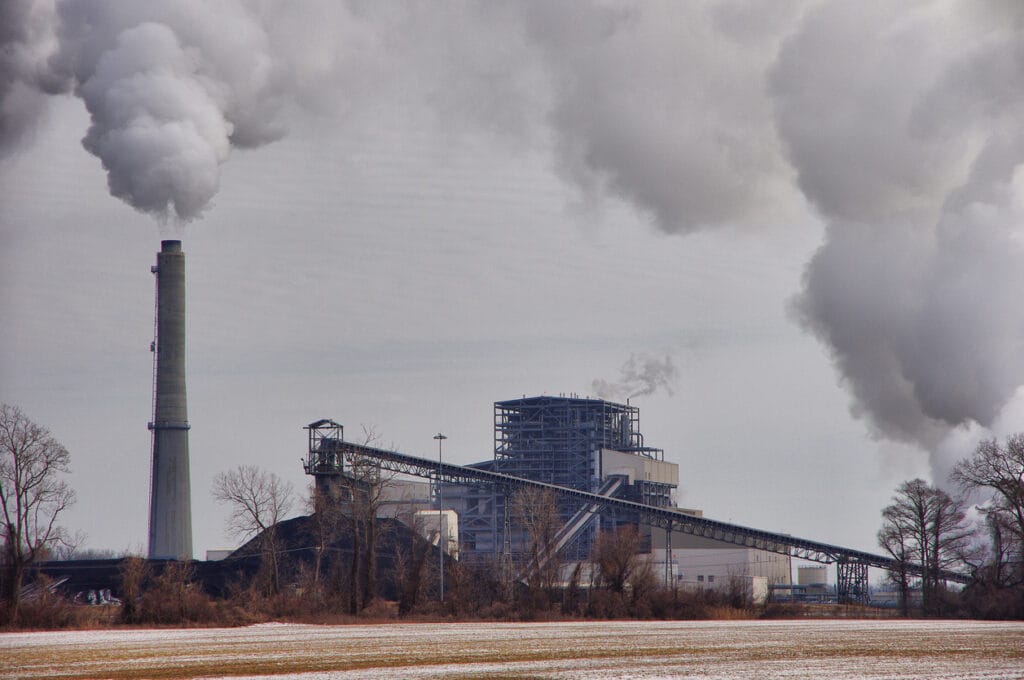
Every state essentially must enforce the Clean Air Act, and you’ve got organizations like the Sierra Club and others that go around and sue utilities if they think that they’re emitting too much carbon. But the real effect of these actions is the erosion of our ability to provide affordable, reliable power.
The constant shifts in federal policy create uncertainty. Utilities are hesitant to invest billions of dollars into proven, dependable infrastructure when they know the political winds could change in four years, possibly forcing them to shut those plants down. That kind of instability makes long-term planning incredibly difficult.
It’s a frustrating environment, especially for the utilities themselves. That said, I do believe things are improving. I expect the Trump administration to streamline and expedite many of these regulatory processes. Meanwhile, countries like China are building 14 coal plants a month. We can’t afford to fall behind.
It’s frustrating when we invest heavily in green energy, only to see those efforts effectively canceled out by countries like China.
McKee: That’s right. We’re hurting ourselves in the process. Nations like China aren’t concerned about how many people die or what environmental damage they cause because they’re focused on domination. If we want to remain a sovereign nation with a high standard of living, we’ve got to start making decisions based on facts and science—not emotion.
When it comes to federal regulations, whether it’s the Federal Energy Regulatory Commission (FERC), North American Electric Reliability Corporation (NERC), or the Environmental Protection Agency (EPA), it’s incredibly frustrating. These agencies are deeply entrenched in the system and can be difficult to navigate or reform, even with a friendly administration in the White House.
The bigger challenge is that people making long-term energy decisions know the political tide could turn again in just a few years. Those lifelong bureaucrats can be patient and wait out more friendly administrations. That uncertainty makes it risky to act decisively, even under favorable conditions, because they could end up paying the price when the next administration takes over.
Are there any new energy technologies or innovations that you’re excited about — things that could help create more energy abundance and bring down costs in Arkansas? I’m a novice but I’ve been reading about geothermal and some of the new nuclear technology out there.
McKee: There are several out there. I’ve heard a lot about geothermal and the small modular nuclear reactors that are coming on. I’ve been to Toronto and seen what they’re doing in Ontario with respect to that. Within the next 15 years, those new technologies will benefit ratepayers and consumers here in Arkansas and in the U.S. The problem right now is utilities can’t recover the costs that are necessary to develop those in smaller markets.
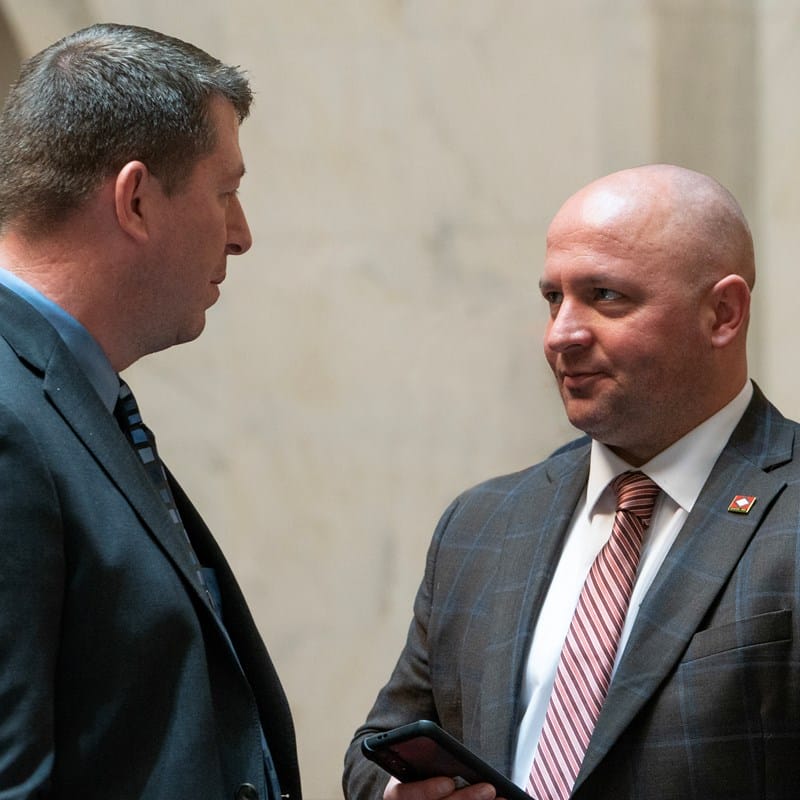
It’s going to take the Googles, it’s going to take the Metas, it’s going to take Amazon and those entities that will be the early adopters who will invest $100 billion to build SMRs, to build these new technologies to get them to a place where they can be commercialized. You’re building five or six at a time and not one at a time. I don’t foresee SMRs being beneficial to the ratepayers for another 10 to 15 years. I wish it were faster, but that’s the reality of the current development and deployment timeline.
Right now, permitting a Small Modular Reactor (SMR) would likely take nine or ten years. Still, the horizon for SMRs is exciting. The real question is: do we want energy abundance and energy dominance, or are we willing to accept decline? Because you simply can’t sustain a high standard of living without access to cheap, reliable power.
Frankly, I believe some environmental extremists would be content with zero human impact, even if that meant billions of people had to suffer or die. I’m not okay with that.
I’m going to keep fighting to make sure people have access to affordable, dependable energy because that’s what keeps society moving. If you look at many developing nations, the biggest difference between their quality of life and ours is access to reliable electricity.
I lived in Egypt, and so I know about brownouts. There were times when power was shut off for hours at a time.
McKee: Yes, if it’s unreliable, you can’t have lifesaving devices, you can’t have financial transactions, you don’t have air conditioning, you don’t have heating. This is really about climate mastery, not climate protection. I appreciate the work done by people like Alex Epstein and Michael Shellenberger, who’ve become strong communicators on this issue. If we want to enjoy the abundance that we’ve created and our parents and grandparents created, and if we want our kids to benefit from that, we’ve got to be producing power from every source that we can, except for solar and wind.
Those are the biggest garbage money laundering schemes that have existed in the past 100 years. We passed a permitting process for Arkansas last year that will hopefully ensure that there’s no more wind developed in Arkansas because the wind turbines that they were going to build here were not 450 feet tall, they were 750 feet tall. They were going to place them atop some of Arkansas’s most beautiful peaks. At that point, we might as well change the name from ‘The Natural State’ to something else.
In your view, what does good energy policy look like, especially for a state like Arkansas? Particularly for someone who doesn’t follow energy closely but wants affordable rates and to better provide for their family, how would you define smart, effective energy policy?
McKee: One of the unfortunate things I’ve come to realize is that we pay for electricity based not on its actual cost, but on the amount of money utilities invest. While we do cover the cost of fuel and other inputs, the way we structure payments creates incentives that don’t always benefit ratepayers. That’s something we’re closely examining.
In my view, we should be building more coal plants and quickly. The U.S. has over 300 years’ worth of coal reserves. It’s a reliable and relatively inexpensive power source.
We need to make energy decisions based on numbers and science—not emotion. Feel-good policies that claim to “save the planet” often don’t move the needle and end up burdening our children and grandchildren with unnecessary costs.
It’s critical that the incentives we create for utilities guide them toward smart, reliable investments, whether in coal, nuclear, natural gas, or geothermal. All of these can provide consistent baseload power.
Unfortunately, current federal incentives heavily favor renewables, which has distorted the energy landscape. I hope those incentives fade away and stay away. At the state level, our focus should be on setting policy that promotes investment in power sources that are truly reliable and cost-effective.
I must ask you, what do you like most about Arkansas? It’s a hidden gem in many respects.
McKee: Arkansas is a hidden gem. I didn’t grow up here. I grew up in Colorado. I’ve been here for over 20 years, and it’s the greatest state in the nation.
Arkansas feels like a small town, just on a bigger scale. It’s not crowded, there’s less traffic, people are friendly, and the natural beauty is unmatched. We have stunning rivers, lakes, mountains, and forests and you get to enjoy all four seasons. The cost of living is very reasonable, making it a fantastic place to live, work, and raise a family. People come here for the outdoors, for the rich history, and for the lifestyle. Personally, I love the heat and humidity. Arkansas has so many great qualities, it’s hard to pick just one reason to love it.

